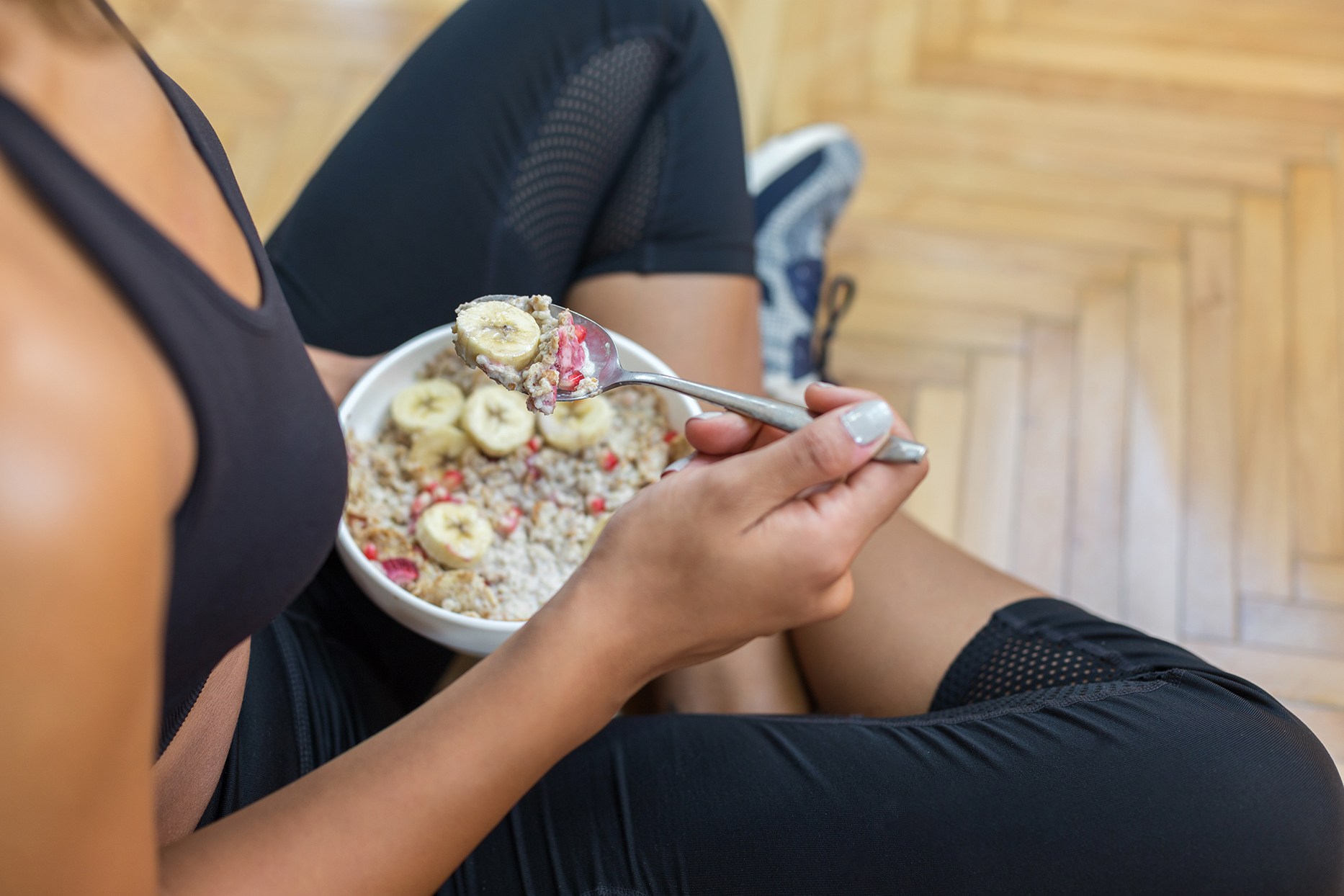
05 Jun Post-Workout Nutrition: What to Eat After Ballet Class
You put a lot of effort into your workouts, always looking to perform better and reach your goals. Chances are you’ve given more thought to your pre-workout meal than your post-workout meal. But consuming the right nutrients after you exercise is just as important as what you eat before. Here is a detailed guide to optimal nutrition after workouts.
Eating After a Workout Is Important
To understand how the right foods can help you after exercise, it’s important to understand how your body is affected by physical activity. When you’re working out, your muscles use up their glycogen stores for fuel. This results in your muscles being partially depleted of glycogen. Some of the proteins in your muscles also get broken down and damaged. After your workout, your body tries to rebuild its glycogen stores and repair and regrow those muscle proteins. Eating the right nutrients soon after your workout can help your body get this done faster. It is particularly important to eat carbs and protein after your workout. Doing this helps your body:
- Decrease muscle protein breakdown.
- Increase muscle protein synthesis (growth).
- Restore glycogen stores.
- Enhance recovery.
Protein, Carbs, and Fat
- Protein Helps Repair and Build Muscle: As explained above, exercise triggers the breakdown of muscle protein. The rate at which this happens depends on the exercise and your level of training, but even well-trained athletes experience muscle protein breakdown. Consuming an adequate amount of protein after a workout gives your body the amino acids it needs to repair and rebuild these proteins. It also gives you the building blocks required to build new muscle tissue. It’s recommended that you consume 0.14–0.23 grams of protein per pound of body weight (0.3–0.5 grams/kg) very soon after a workout. Studies have shown that ingesting 20–40 grams of protein seems to maximize the body’s ability to recover after exercise.
- Carbs Help With Recovery: Your body’s glycogen stores are used as fuel during exercise, and consuming carbs after your workout helps replenish them. The rate at which your glycogen stores are used depends on the activity. For example, endurance sports cause your body to use more glycogen than resistance training. For this reason, if you participate in endurance sports (running, swimming, etc.), you might need to consume more carbs than a bodybuilder. Consuming 0.5–0.7 grams of carbs per pound (1.1–1.5 grams/kg) of body weight within 30 minutes after training results in proper glycogen resynthesis. Furthermore, insulin secretion, which promotes glycogen synthesis, is better stimulated when carbs and protein are consumed at the same time. Therefore, consuming both carbs and protein after exercise can maximize protein and glycogen synthesis. Try consuming the two in a ratio of 3:1 (carbs to protein). For example, 40 grams of protein and 120 grams of carbs. Eating plenty of carbs to rebuild glycogen stores is most important for people who exercise often, such as twice in the same day. If you have 1 or 2 days to rest between workouts then this becomes less important.
- Fat Is Not That Bad: Many people think that eating fat after a workout slows down digestion and inhibits the absorption of nutrients. While fat might slow down the absorption of your post-workout meal, it will not reduce its benefits. For example, a study showed that whole milk was more effective at promoting muscle growth after a workout than skim milk. Moreover, another study showed that even when ingesting a high-fat meal (45% energy from fat) after working out, muscle glycogen synthesis was not affected. It might be a good idea to limit the amount of fat you eat after exercise, but having some fat in your post-workout meal will not affect your recovery.
The Timing of Your Post-Workout Meal Matters
Your body’s ability to rebuild glycogen and protein is enhanced after you exercise. For this reason, it’s recommended that you consume a combination of carbs and protein as soon as possible after exercising. Although the timing does not need to be exact, many experts recommend eating your post-workout meal within 45 minutes. In fact, it’s believed that the delay of carb consumption by as little as two hours after a workout may lead to as much as 50% lower rates of glycogen synthesis. However, if you consumed a meal before exercising, it’s likely that the benefits from that meal still apply after training.
Make Sure to Drink Plenty of Water
It is important to drink plenty of water before and after your workout. When you are properly hydrated, this ensures the optimal internal environment for your body to maximize results. During exercise, you lose water and electrolytes through sweat. Replenishing these after a workout can help with recovery and performance).
